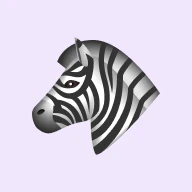Filter interviews by
PwC Azure Data Engineer Interview Questions, Process, and Tips
PwC Azure Data Engineer Interview Experiences
3 interviews found
I applied via Recruitment Consulltant and was interviewed in Nov 2024. There was 1 interview round.
(2 Questions)
- Q1. Python code for prime numbers
- Q2. Data bricks pyspark code for first 10 employees with salary
(3 Questions)
- Q1. Previous project
- Q2. What is partion key?
- Ans.
Partition key is a field used to distribute data across multiple partitions in a database for scalability and performance.
Partition key determines the partition in which a row will be stored in a database.
It helps in distributing data evenly across multiple partitions to improve query performance.
Choosing the right partition key is crucial for efficient data storage and retrieval.
For example, in Azure Cosmos DB, partit...
- Q3. Explai data bricks,how its different from adf
- Ans.
Data bricks is a unified analytics platform for big data and machine learning, while ADF (Azure Data Factory) is a cloud-based data integration service.
Data bricks is a unified analytics platform that provides a collaborative environment for big data and machine learning projects.
ADF is a cloud-based data integration service that allows you to create, schedule, and manage data pipelines.
Data bricks supports multiple pr...
Interview Preparation Tips
- Adf
- data bricks
- SQL
- pyspark
- basic quereis on sql,pyspark
Skills evaluated in this interview
I applied via LinkedIn and was interviewed in Feb 2023. There were 4 interview rounds.

(5 Questions)
- Q1. How do we do delta load using adf?
- Ans.
Delta load in ADF is achieved by comparing source and target data and only loading the changed data.
Use a Lookup activity to retrieve the latest watermark or timestamp from the target table
Use a Source activity to extract data from the source system based on the watermark or timestamp
Use a Join activity to compare the source and target data and identify the changed records
Use a Sink activity to load only the changed re
- Q2. Sql:- fourth highest salry of an employee from an employee table.
- Q3. What is the difference between Blob and adls
- Ans.
Blob is a storage service for unstructured data, while ADLS is optimized for big data analytics workloads.
Blob is a general-purpose object storage service for unstructured data, while ADLS is optimized for big data analytics workloads.
ADLS offers features like file system semantics, file-level security, and scalability for big data analytics, while Blob storage is simpler and more cost-effective for general storage nee...
- Q4. What are the types of triggers available in adf?
- Ans.
There are three types of triggers available in Azure Data Factory: Schedule, Tumbling Window, and Event.
Schedule trigger: Runs pipelines on a specified schedule.
Tumbling Window trigger: Runs pipelines at specified time intervals.
Event trigger: Runs pipelines in response to events like a file being added to a storage account.
- Q5. What is your team size?
(4 Questions)
- Q1. Why do you want to change the company?
- Q2. What you will do if you got an offer from Deloitte?
- Q3. What are your roles and responsibilities?
- Q4. What is expected salary?
(2 Questions)
- Q1. What is your expected salary?
- Q2. Is there any other salary figure in your mind?
Skills evaluated in this interview
What people are saying about PwC






Azure Data Engineer Jobs at PwC
Interview questions from similar companies

I applied via Approached by Company and was interviewed in Aug 2024. There was 1 interview round.
Maxium sub string and reverse a string

I applied via Indeed and was interviewed in May 2023. There were 5 interview rounds.

(1 Question)
- Q1. Basics of python, SQL and pyspark
(1 Question)
- Q1. Questions on Python, SQL
PySpark questions to solve
(1 Question)
- Q1. Architectural questions
Interview Preparation Tips

I applied via Company Website and was interviewed in Aug 2024. There were 2 interview rounds.
(2 Questions)
- Q1. Project related discussions
- Q2. Meduim level SQl and DSA
(2 Questions)
- Q1. This was data modelling round
- Q2. Design a uber data model
- Ans.
Uber data model design for efficient storage and retrieval of ride-related information.
Create tables for users, drivers, rides, payments, and ratings
Include attributes like user_id, driver_id, ride_id, payment_id, rating_id, timestamp, location, fare, etc.
Establish relationships between tables using foreign keys
Implement indexing for faster query performance
Interview Preparation Tips
Skills evaluated in this interview

I applied via Approached by Company and was interviewed before Mar 2023. There were 3 interview rounds.
(1 Question)
- Q1. Past Exp and Resume
Take home coding test with 3 SQL and 3 Python questions. Asked to solve only SQL questions but I solved them all.
(1 Question)
- Q1. 3 in-person interviews with general discussions about resume and past projects
Interview Preparation Tips

I applied via Recruitment Consultant and was interviewed in Mar 2021. There were 4 interview rounds.
Interview Questionnaire
2 Questions
- Q1. Questions were around my old project, what was my responsibility. Technical questions were objective questions on Python and SQL. There were three technical rounds o which final technical round was with th...
- Q2. All technical questions were around how to process data using SQL and Python. What are triggers, functions and Store procedures and differences between them. What types of joins are possible and difference...
Interview Preparation Tips

I appeared for an interview in Sep 2023.
(1 Question)
- Q1. When the interview get started, interviewer directly jump into python coding questions based on the dict, arrays and lists. And then asked about some question data ware houses on SCD, Data Modeling,...etc....

I applied via Company Website and was interviewed in Apr 2024. There was 1 interview round.
(2 Questions)
- Q1. Present yourself
- Q2. Asks about level of experience in each tachnology in the CV
PwC Interview FAQs
Tell us how to improve this page.
PwC Interviews By Designations
- PwC Associate Interview Questions
- PwC Senior Associate Interview Questions
- PwC Consultant Interview Questions
- PwC Associate2 Interview Questions
- PwC Associate Consultant Interview Questions
- PwC Manager Interview Questions
- PwC Senior Consultant Interview Questions
- PwC Technology Consultant Interview Questions
- Show more
Interview Questions for Popular Designations
- Azure DevOps Engineer Interview Questions
- Azure Administrator Interview Questions
- Azure Developer Interview Questions
- Azure Cloud Engineer Interview Questions
- Azure Cloud Administrator Interview Questions
- Data Analyst Interview Questions
- Data Engineer Interview Questions
- Data Scientist Interview Questions
- Show more
PwC Azure Data Engineer Interview Process
based on 3 interviews
Interview experience
Interview Questions from Similar Companies
Fast track your campus placements
PwC Azure Data Engineer Reviews and Ratings
based on 2 reviews
Rating in categories
Hyderabad / Secunderabad
4-8 Yrs
Not Disclosed
Bangalore / Bengaluru
4-8 Yrs
Not Disclosed
Kolkata,
Hyderabad / Secunderabad
+15-9 Yrs
Not Disclosed
|
Senior Associate
15.8k
salaries
| ₹8 L/yr - ₹30.2 L/yr |
|
Associate
13.3k
salaries
| ₹4.9 L/yr - ₹17 L/yr |
|
Manager
6.6k
salaries
| ₹14 L/yr - ₹45 L/yr |
|
Senior Consultant
4.5k
salaries
| ₹9 L/yr - ₹33 L/yr |
|
Associate2
4.3k
salaries
| ₹4.7 L/yr - ₹17.6 L/yr |

Deloitte

Ernst & Young

Accenture

TCS
- Home >
- Interviews >
- PwC Interview Questions >
- PwC Azure Data Engineer Interview Questions



















